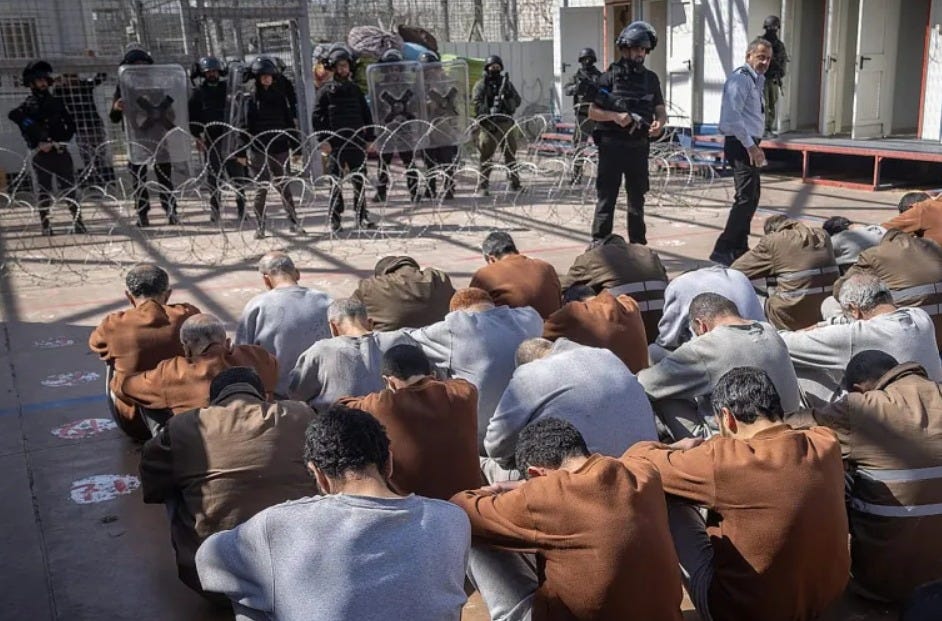Palestinian Detainees Left to Freeze in Southern Israeli Prisons
Prisons in the Negev, Nafha, and Ramon — along with new facilities established during the war on Gaza, especially “Sde Teiman,” are experiencing extremely harsh conditions
Palestine, PUREWILAYAH.COM - The Palestine Center for Prisoner Studies warned of worsening humanitarian conditions inside Israeli prisons in the south, especially in Negev detention facilities, as the latest wave of cold and rain begins.
Detainees are suffering from freezing limbs and the complete absence of heating or winter clothing for more than two years.
In a press statement issued Tuesday, the center explained that prisons in the Negev, Nafha, and Ramon — along with new facilities established during the war on Gaza, especially “Sde Teiman,” which together hold nearly half of all detainees — are experiencing conditions it described as “extremely harsh.”
Temperatures have fallen close to zero, with water leaking into sections and damaging the few personal belongings detainees possess.
Negev Prison Worst Affected
The center’s director, Riyad Al-Ashqar, said the Negev prison is the most affected, holding more than 2,500 detainees in sections built from tents directly exposed to rain leakage.
He confirmed that the occupation prevents the entry of blankets and winter clothing, while new detainees arrive with only the clothes they were arrested in.
The situation has worsened as detainees are denied hot water, following orders by extremist Israeli National Security Minister Itamar Ben-Gvir.
Al-Ashqar stated that detainees already endure harsh conditions and ongoing abuse, but the current cold wave has intensified their suffering and increased the likelihood of winter illnesses such as influenza, cough, and fever — especially with the lack of medical treatment and the ban on herbal remedies like chamomile and sage for the past two years.
Prisons Unprepared for Winter
The center stressed that the prison infrastructure is not prepared for cold weather. Detainees are taken outside early in the morning under the pretext of security inspections, further worsening their health.
It called on international human rights institutions to intervene urgently, form independent committees to visit the prisons, and pressure the occupation to restore family visits suspended for over two years. (PW)


